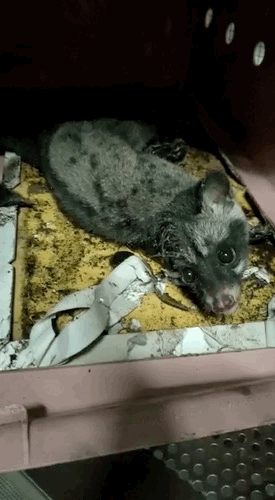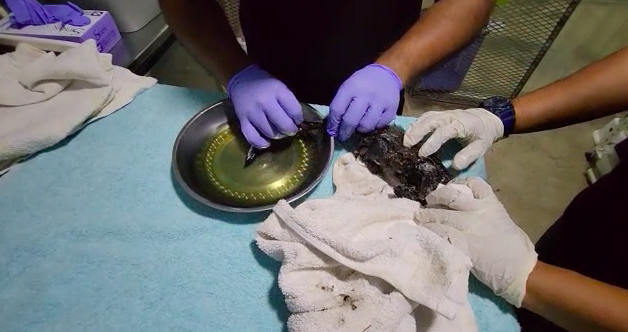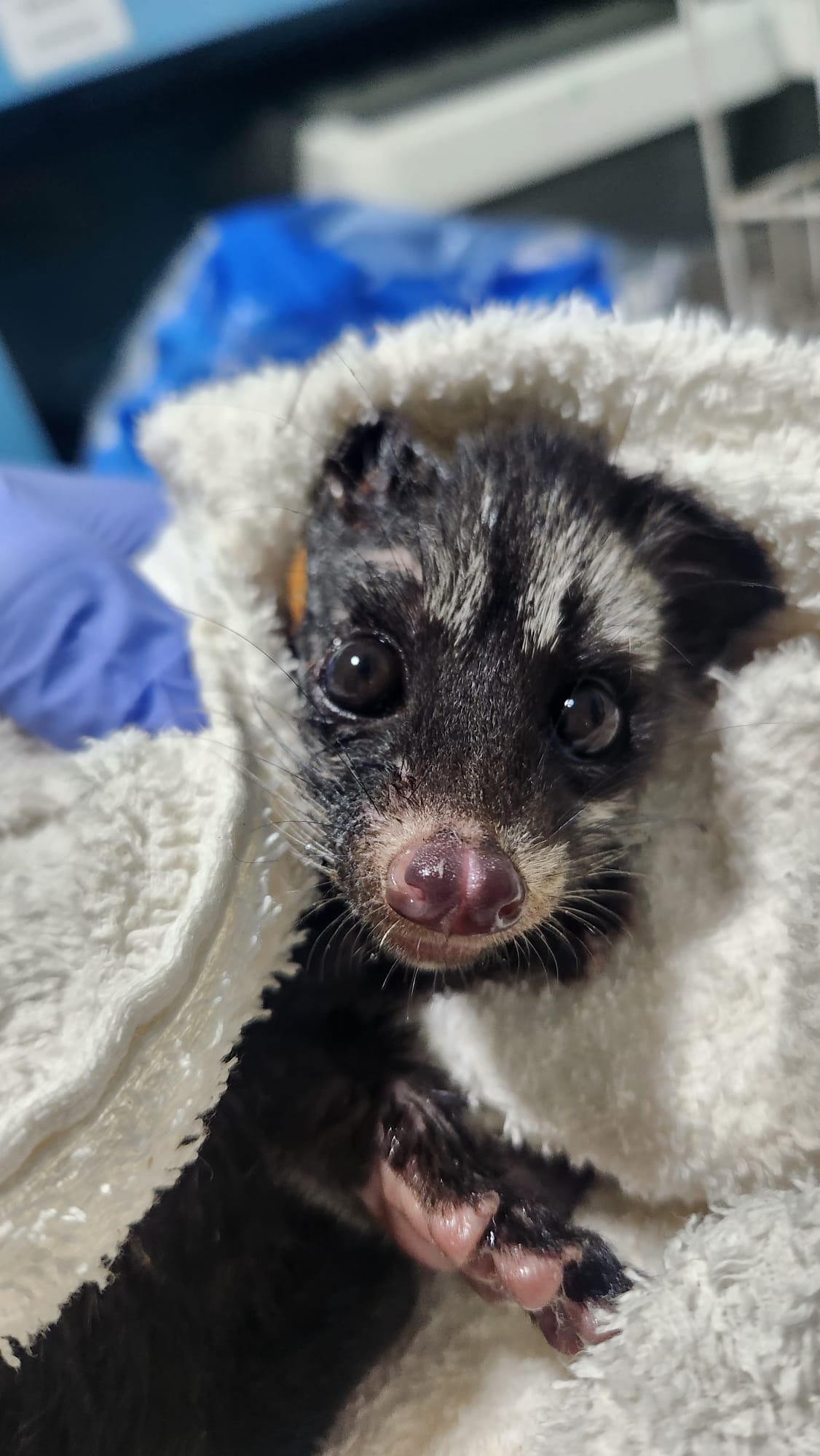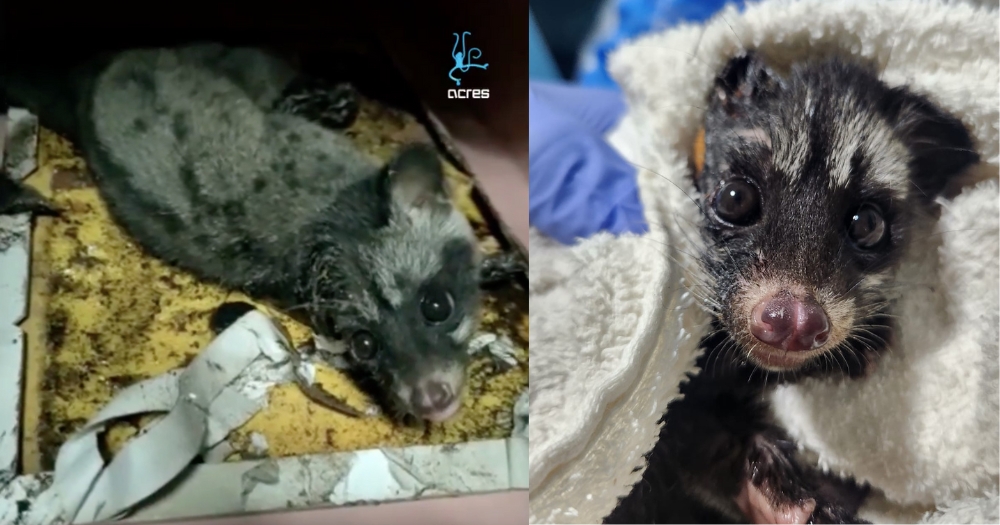Follow us on Telegram for the latest updates: https://t.me/mothershipsg
Glue traps are still in use in Singapore, even though they are deemed cruel and largely ineffective as they often accidentally trap small animals other than the targeted pests.
Recently, a baby civet fell prey to a glue trap and was rescued by wildlife rescue organisation Animal Concerns Research and Education Society (Acres).
The rescue
On Jan. 31, Acres received a call on their hotline from a military base in Singapore about a juvenile Common Palm Civet.
The baby civet was pitifully stuck in the glue trap.
 GIF via Kalai Vanan
GIF via Kalai Vanan
After ensuring its safety and successfully extracting it from the trap, Acres rescuers had to painstakingly and gently clean the glue from the baby civet.
 Image via Kalai Vanan
Image via Kalai Vanan
Baby civet's condition
The baby civet is doing well under rehabilitation, but according to Acres co-CEO Kalai Vanan, they are unable to reunite it with its family as it was found on private property and staff are unable to re-enter the premises.
Kalai told Mothership the baby civet is currently being hand-raised.
It cannot be released as it is young and needs its parents. It will be released elsewhere into the wild once it is older.
 Image via Kalai Vanan
Image via Kalai Vanan
Glue traps are harmful
Glue traps are small boards made of cardboard, fiberboard, or plastic coated with a sticky adhesive.
These are not just ineffective methods to trap pests, but are cruel and unethical solutions that can trap other innocent animals.
According to Kalai, these traps are not monitored frequently and animals die a slow painful death.
When trapped, animals suffer from fatigue, dehydration, stress and fear.
Kalai shared that Acres responds to "almost one glue-trapped animal every two days".
Instead of using glue traps, one is encouraged to implement measures to prevent their area from attracting unwanted guests, such as disposing of trash properly and keeping food away from open areas.
There are many other humane methods one can consider for a variety of animals, Kalai said.
If one spots any animal stuck in glue traps or in distress, they can call Acres' 24-hour wildlife rescue hotline at 97837782 .
What are civets?
According to the National Parks Board (NParks), civets are commonly called civet "cats" and are also known as musang, but are more closely related to mongooses.
They have a long, sleek body, with short limbs, a long tail, long muzzle and small ears.
Its body is a dark greyish brown, with three dark stripes along the back and black spots on the sides. They are also identified by the black 'mask' across the face.
In Singapore, the Common Palm Civet is commonly sighted.
They are nocturnal in nature and prefer to stay in trees and high places.
Related articles
Images via Acres/ Instagram and Kalai Vanan.
If you like what you read, follow us on Facebook, Instagram, Twitter and Telegram to get the latest updates.
